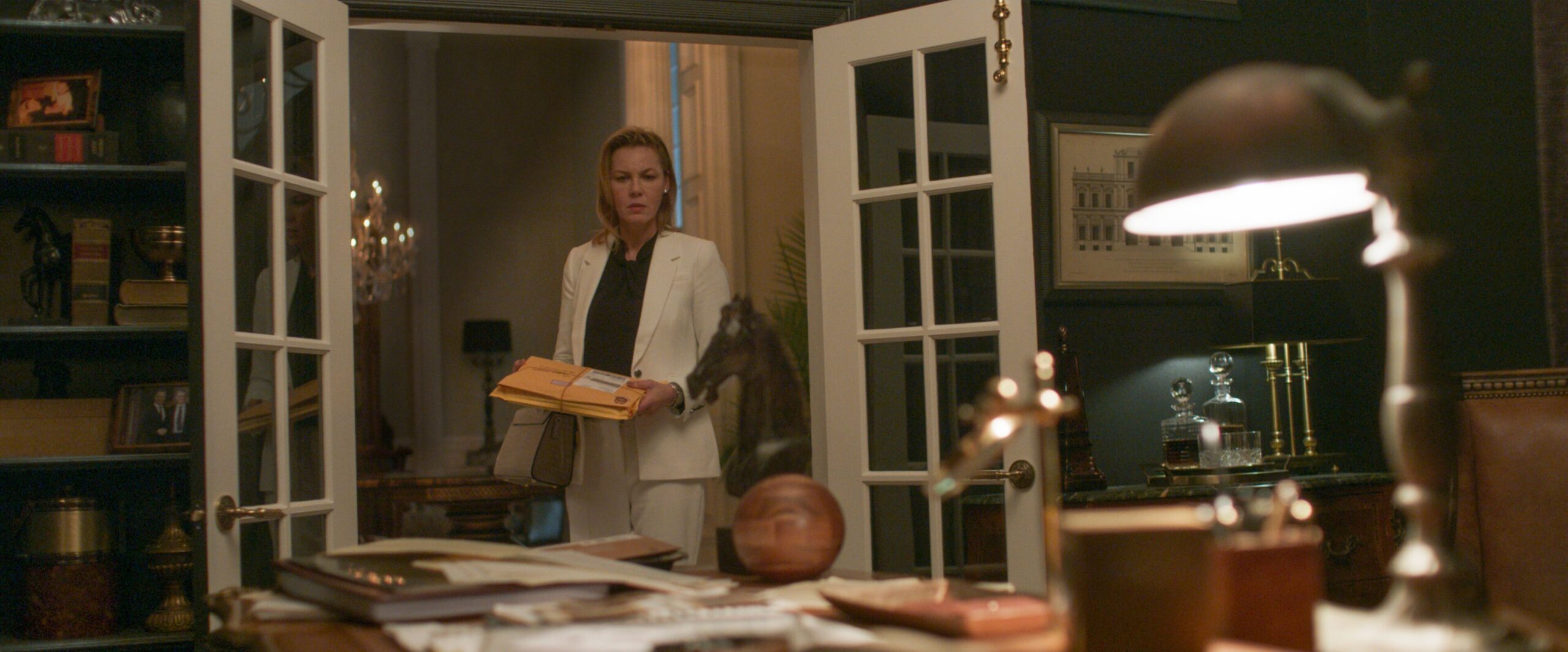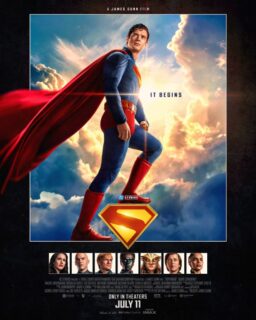“Inheritance” stars Lily Collins as the daughter of a powerful, wealthy, and controversial man named Asher (Patrick Warburton) who dies suddenly at the beginning of the film. He leaves his daughter a key that leads her to some (literally) long-buried family secrets. Her mother is played by Connie Nielsen, who spoke with RogerEbert.com about how speaking eight languages helps her to create characters, what she learned from Ridley Scott, and what she and her children have been watching at home.
We’re going to be careful to avoid spoilers here, so just generally, tell me about your character, who we first see hearing her late husband’s will, which treated the two children very differently.
My character is a very stoic kind of woman, somebody who is used to being around strong-willed men, including her husband, and I think she just decides that she’s going to handle that by herself, and take care of business the way it’s supposed to be, and change whatever wrong has been made. A simple black dress, a simple structured jacket, staying in very simple tones, very simple cuts. And I just did the hair in a very classic bob, and injected a certain steeliness, because she’s an ex-lawyer, and she has this steely reserve that she has used to overcome trauma, and to overcome, and the difficulties of living with a controlling kind of husband.
You are fluent in eight languages. How does being polylingual help you as an actress?
Well first of all, it allows me to work in many different cultures. I am Danish originally, and I’ve had this awesome experience of being able to work in Italian, in French, in English, and also to shift between many different American accents as well. I’ve done Chicago, Boston Brahmin, I’ve done Southern and Louisiana, I’ve done Florida, I’ve done all these different accents, and that has been a lot of fun. Changing languages and accents is in fact like a physical experience. It is definitely something where I allow my body to feel it. It almost feels as if the heart beats differently when you’re in character. It’s just a different rhythm.

There’s a powerful moment in the movie where you tell your daughter, “The mistakes your father made are my burden, not yours.” You evoke such a sense of shared history.
It was just so easy with Lily, because she’s such an intuitive actor. She just digs in emotionally, and accesses these reserves of emotion within her in a very direct and beautiful way. I really enjoyed working with Lily, and it wasn’t difficult for us at all, I think, to make that shift as soon as we went into the scene.
You have, as you said, worked in a lot of different countries, and with a lot of different directors. Which director has taught you the most?
I guess it would have to be Ridley Scott. It had to do with teaching me the way in which he was bringing an energy from one side of the screen to another side of the screen. I learned a lot about camera work when I was watching Ridley shoot during that whole film [“Gladiator“]. I tried to hide close by the director’s group so I could see what was happening and what they were doing, and it was just such a great learning experience. The same thing happened with Susanne Bier on “Brothers,” because again, here was an actual technical innovation of the medium, because we were using all handheld cameras, and it was very much during Dogme. Even though it wasn’t explicitly part of the Dogme experiment, we were using all of those learned lessons from Dogme in that film, and the experience and the freedom of that was just so intoxicating. I think on “Wonder Woman,” I just took the time to really work with the stunt people and the stunt director as well, to see how I could maximize selling a physical gesture in the film, without letting go of the purity of the feeling, of the emotion, in fact, many times feeling that the actual actions of the character just enhance that point of departure as well.

How has the experience of being sheltered been for you?
I have a couple of really grown kids, and having had them home has been just amazing. I also have been living between two houses with my kids, because my youngest, I share custody with his dad. Seeing how our families have collaborated and how we’ve been respectful of each house’s needs and preferences, and been able to collaborate across all this stress, and at the same time having the grown up kids home for this long period, and really getting back to that almost intimacy of childhood, even though they are now adults out in the world, has been this unexpected gift. Now they’ve all started going back to work and back to the various places, and I will cherish that memory of quarantine with them. We have revisited all of my grown up kids’ favorite movies to make a sort of informal movie history series, for my youngest son. We’ve seen all of the “Mad Max” movies, we’ve seen all of the ’90s teen movies like “Orange County.” We’ve just had a real ball going through relatively old movies, and then not-so-old movies, and then discussing afterwards: what was the point of this film? What did it do back in the day when it came out, and what did it mean? Especially “Mad Max.” Then we saw the latest one, [“Mad Max: Fury Road“], after that. It’s just such amazing filmmaking. And then you can see which films have aged well and which haven’t, and it’s just been fantastic to do that.
My heart goes out to all of the families who’ve had to struggle throughout this time, both financially and medically. I really would like us to take a moment, maybe when the worst of this is over, to just revisit the systems with which we keep each other safe, whether it’s the medical systems or the financial systems. Are we keeping everyone safe, you know, and if we’re not, what can we do to change that?
“Inheritance” is available on VOD today, 5/22.












